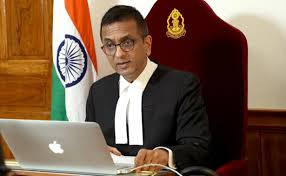During a recent event, Chief Justice Of India DY Chandrachud emphasized the delicate balance required between search and seizure powers and individual privacy rights in criminal justice. He also stressed the importance of upholding due process while ensuring the effective functioning of law enforcement agencies.
Speaking at the 20th DP Kohli Memorial Lecture organized by the Central Bureau of Investigation (CBI), the Chief Justice stated, “In the realm of criminal justice, the delicate balance between search and seizure powers and individual privacy rights stands at the cornerstone of a fair and just society. At the heart of this balance lies the need to uphold due process while ensuring the effective functioning of law enforcement agencies.”
He further addressed the pressing need to strike a balance between investigative imperatives and individual privacy rights, citing instances of raids and unwarranted confiscation of personal devices.
The Chief Justice also referenced a PIL filed by the Foundation for Media Professionals seeking guidelines for the seizure of personal electronic devices by investigating agencies. He highlighted the importance of the CBI Manual, which mandates the provision of hash values for confiscated digital devices to safeguard integrity.
Discussing new criminal laws, the Chief Justice explained their aim to digitize every stage of a criminal investigation, from filing an FIR to delivering judgment. He emphasized the significance of swift justice delivery, particularly in cases involving serious violations of the law.
In concluding his lecture, the Chief Justice suggested the development of a mobile application with predefined timelines for different stages of investigation or trial, aiming to facilitate communication and coordination among stakeholders. He highlighted the transformative reforms undergone by the CBI to strengthen its investigative capabilities and underscored the importance of robust safeguards to protect individual rights and promote transparency.

